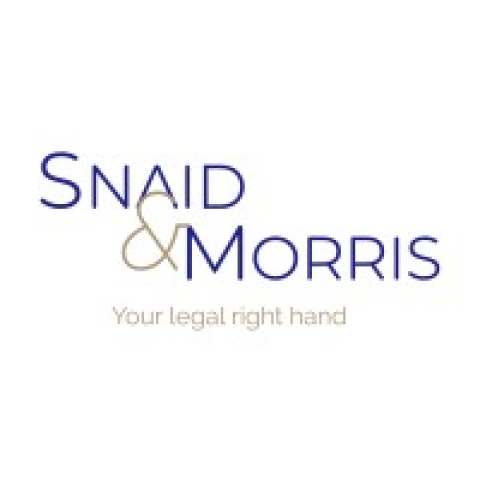Is a Debtor’s Inability To Pay the Death Knell for Any Creditor
In today's turbulent economic times, all too often do companies hear from debtors, be they other companies or natural people that owe them money that they cannot pay their account. This creates a domino effect. A domino effect which ends up knocking over other companies, for want of a better term.
But is this the end of the line for the creditor who so willingly provided goods or services to an unscrupulous debtor. We submit that it is not. South African company law and insolvency law gives aggrieved creditors many different avenues to look at. There is of course the traditional debt collecting process. This is a process that is normally undertaken in a Magistrate's Court, Regional Court or High Court depending on the quantum claimed. It will involve the issuing of a letter of demand, albeit a normal letter of demand or a letter of demand in terms of the National Credit Act, it will then be followed up by a summons, either a simple summons or a combined summons, and thereafter should the matter be defended a process of preparing for trial will commence culminating in a trial before a Magistrate or a Judge depending on the court the matter is in. Of course this does not end the matter there. If the creditor gets a judgment in a creditor's favour there is nothing stopping the debtor from appealing the judgment to a higher court. Should the debtor not put in a notice of intention of defend, then a standard default judgment process will follow where a default judgment is sought from the court. The debtor could apply to rescind (set aside) the judgment. Once the default judgment is given, it, like a judgment after a trial, can be executed upon by issuing out a Writ of Attachment and sending the Sheriff of the Court to collect assets i.e. attach assets for the benefit of the execution creditor. There are various other forms that could follow such as Section 65 court appearances whereby the assets and liabilities are examined in a court setting before a Magistrate and an order is made to pay the debt off at a certain rate per month.
Other Alternatives
The other alternative and sometimes the more effective alternative, would be to begin liquidation and/or sequestration proceedings. There are various requirements for such a proceeding to commence. In terms of prevailing legislation, should the debtor be an incorporated being i.e. a company, then and in such instance a creditor can instruct its attorneys or his or her attorneys to send a demand in terms of Section 345 of the Companies Act of 1973 calling upon the debtor to pay the amount claimed within three weeks after delivery of such notice to the registered office and principal place of business, failing which it will be deemed that the debtor is unable to pay its debts and is henceforth insolvent. Should such a letter be ignored and no valid excuse be given, an application in the form of Notice of Motion can be issued out of the High Court for the liquidation of the juristic entity. Once, final order or a provisional liquidation order has been granted the entity is placed in the hands of the Master of the High Court who appoints a liquidator to manage the companies affairs. This is a very far reaching and serious action, that effectively takes control of the company away from its directors and shareholders. I, for one, believe that it is the most effective way of collecting debts where there is no dispute of fact. Either what will happen is a reluctant debtor who is just trying to avoid paying will pay, or a company that is in serious financial problems will land up being placed in the hands of the Master and thus other creditors will be protected from the directors behaviour. The same applies with a natural being, however there is no mechanism to send a letter of demand that as of right, will give way to an application for sequestration. However if a natural being advises a creditor that he or she is unable to pay their debts then simply put, an act of insolvency has been committed, and so long as the court is satisfied that there is a benefit to creditors, the court on petition via Notice of Motion, will grant a sequestration order against the person. Sequestration takes the administration of the estate out of the hands of the natural person and places it in the hands of the Master of the High Court who in turn appoints a trustee for that person, to investigate the affairs, liquidate assets as in an insolvent company, and pay out to creditors, any dividend.
The results of a liquidation and/or sequestration do not end at the court order. If a creditor and/or a liquidator/trustee believe that there are assets being hidden by the company in liquidation or the debtor in the form of a natural person. The liquidator or trustee can on his or her own fruition or on the instruction of creditors approach the Master of the High Court for, in the case of an incorporated company, an enquiry in terms of Sections 415 before the Master, or an enquiry in terms of Sections 416,417 and 418 of the Companies Act 1973, for an enquiry before a Commissioner. A Commissioner is somebody appointed to the position by the Master of the High Court upon application of the Liquidator and is somebody who has experience in insolvency, either an admitted attorney, retired Judge or an insolvency practitioner. In the case of a natural being an enquiry can be held in terms of Section 152 of the Insolvency Act before the Master of the High Court into the affairs of the insolvent.
These enquiries are most valuable to debtors where there is a large amount of money outstanding, as these enquiries tend to yield up information as to where assets and funds of the insolvent company or sequestrated person lie. It empowers the liquidator or trustee to go and collect these assets that would otherwise go undetected, realise these assets for the benefit of the creditors, and provide a better return to creditors.
It is submitted that although traditional debt collection procedures have their place and work, insolvency is sometimes the best and only option when dealing with delinquent debtors of any nature. The insolvency and corporate collections department of Snaid & Morris Attorneys has a wealth of experience in doing this. Please feel free to contact us and discuss any problems you may have, be it a debtor who refuses to pay or a debtor who advises that they cannot pay you.

